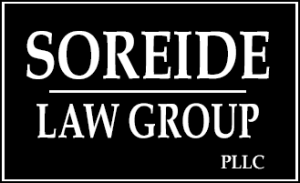In a Wall Street Journal article by Patrick Lee, he writes that looking to attract employers’ attention, some law schools are throwing out decades of tradition by replacing textbook courses with classes that teach more practical skills.
Lee says that Indiana University Maurer School of Law started teaching project management this year and also offers a course on so-called emotional intelligence. The class has no textbook and instead uses personality assessments and peer reviews to develop students’ interpersonal skills.
Additionally, New York Law School hired 15 new faculty members over the past two years, many directly from the ranks of working lawyers, to teach skills in negotiation, counseling and fact investigation. The school says it normally hires one or two new faculty a year, and usually those focused on legal research.
A few elite players also are making adjustments. Harvard Law School last year launched a problem-solving class for first-year students, and Stanford Law School is considering making a full-time clinical course—which entails several 40-hour plus weeks of actual case work—a graduation requirement.
Washington and Lee University School of Law completely rebuilt its third-year curriculum in 2009, swapping out lectures and Socratic-style seminars for case-based simulations run by practicing lawyers.
“Law firms are saying, ‘You’re sending us peoplewho are not in a position to do anything useful for clients.’ This is a first effort to try and fix that,” says Larry Kramer, the law dean at Stanford.
These moves come amid a prolonged downturn in the legal job market. Only about one-quarter of last year’s graduating law-school classes—down from 33% in 2009—snagged positions with big law firms, according to the National Association for Law Placement, an organization that collects employment data.
Lee goes on to say that in past years, a law firm could bill clients for a new lawyer’s work, even if that time were spent getting the novice up to speed. During the recession, corporate clients started limiting the number of hours a firm could charge and made it a policy not to pay for first-year associates.
“This is a push from clients saying, ‘Why are we going to pay this kind of money? We don’t want to train the new lawyers,'” says Jennifer Queen.
There are also fewer jobs to go around at a time when lawyers are in excess. In 2010, there were more than twice as many people—about 54,000—who passed the bar exam than there were legal job openings in the U.S., according to an analysis by consultants at Economic Modeling Specialists Inc.
Most law schools’ offerings cover a wide range of topics, but clinical placements—often students’ first chance for a taste of real law work—are usually optional and far fewer in number than theory-based courses.
“Medical students learn from real doctors in a real hospital during their education. In law, we’re learning from a bunch of academics who have deliberately elected not to pursue law as a profession…there’s such a disconnect,” says BeiBei Que, a 2007 graduate of the University of Illinois College of Law. Ms. Que, who runs a boutique law firm that helps tech start-ups navigate legal issues, says she had to pick up practical skills—networking, soliciting clients, forming a business plan—on her own.
Law schools have generally lagged behind other, more real-world oriented institutions like business schools in piloting practical improvements, as law professors tend to focus on scholarly work, says Bill Henderson, a professor at Maurer. And curriculum change tends to “move like a glacier,” he adds.
The WSJ article points out that many remain skeptical that new approaches to education will have a meaningful impact on the ability of lawyers to land jobs. “It could enhance the reputation of the law school…as places that will produce new lawyers who have practical skills,” says Timothy Lloyd, a partner at Hogan Lovells. “As to the particular student when I’m interviewing them? It doesn’t make much of a difference.”
Other recruiters say schools that have overhauled programs need to do a better job of promoting the changes to employers in order to see an impact.
Attorney Lars Soreide of Soreide Law Group, PLLC, represents those seeking admittance to the Florida Bar, and existing lawyers, for both investigative hearings and formal hearings in front of the Florida Bar. For more information about our services please visit: www.floridabarhearing.com or call (888) 760-6552.

